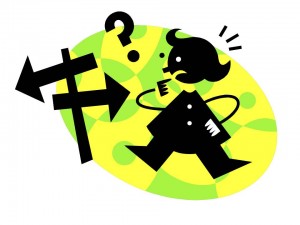 Americans find health insurance decisions the second most difficult major life decision only behind saving for retirement (36%) and slightly more difficult than purchasing a car (23%), via Aetna’s Empowered Health Index Survey. Why are health insurance choices so tough? Consumers told Aetna that the available information is confusing and complicated (88% percent), there is conflicting information (84%) and it’s difficult to know which plan is right for them (83%).
Americans find health insurance decisions the second most difficult major life decision only behind saving for retirement (36%) and slightly more difficult than purchasing a car (23%), via Aetna’s Empowered Health Index Survey. Why are health insurance choices so tough? Consumers told Aetna that the available information is confusing and complicated (88% percent), there is conflicting information (84%) and it’s difficult to know which plan is right for them (83%).
Based on this survey’s findings, millions of Americans indeed feel dis-empowered by health care decision making. Who is empowered? Aetna says the empowered are likely to be more affluent, insured, married, take prescriptions as instructed, are employed, have a chronic condition, and tend to be female.
On the other side of the empowerment coin, the survey found that less empowered people tend to be male, divorced, African American or Hispanic, in poor or fair health, unemployed, with lower income less than $50K, and uninsured.
Other key findings found in Aetna’s survey are that:
- 41% have skipped prescription meds, stopped them, or postponed needed medical procedures. The most likely people to delay care or skip meds are those in fair or poor health (76%) and those with chronic health conditions (57%).
- 22% of people have gone into savings in the past year to pay for health care.
- 42% of U.S. adults don’t track their health care out-of-pocket costs. 81% have difficulty making medical decisions because they do not know the costs of tests and procedures. The lack of price transparency prevents people from feeling empowered in health care decision making. Two-thirds of people told Aetna they want access to health cost information, and two-thirds also want to be able to compare health care providers based on quality ratings.
- 54% of consumers use websites and apps that help them manage their health, versus 45% who rarely or never do.
- 16% of consumers use mobile phone apps to manage their health, and 43% are interested in using a mobile app to receive reminders for doctors’ appointments and medication.
- 69% want access to their medical records.
Aetna’s looking to engage more with patients through social media, using the Twitter hashtag #emphealth.
Aetna’s phone survey was conducted in July 2012 among 1,500 U.S. adults 18 years and older.
Health Populi’s Hot Points: Of the 15% of Americans who do not have health insurance, Aetna found that 36% do not believe they have enough information to shop for it and 24% are not confident in their ability to choose the right plan.
To help its current enrollees, Aetna developed a cost-estimation tool, the Member Payment Estimator, which personalizes how much out-of-pocket costs will be for the patient using the tool. Aetna also re-designed the arcane Explanation of Benefits form using fifth-grade language.
Looking to 2014 when more U.S. health citizens will access to Health Insurance Exchanges for purchasing health insurance, people will need information that directly speaks about health insurance plans that are most relevant to them. This will mean more than parsing words into lower-level language for an elementary school readership. It means re-inventing health communications in a disruptive way. Most people who are fortunate enough to be insured don’t love the arcane benefit documentation handed them at health plan election time, and continue to be challenged by health plan illiteracy – that is, not understanding how to use HSAs, MSAs, and other facets of consumer-directed health plans.
The new-new health communication will engage people online (whether on computers or via mobile platforms) with artfully designed interfaces and entertaining, cleverly scripted language. The health plan that does that will garner market share, at least in the first wave of consumer adoption of these new health plans.
To hold onto these new health plan customers, plans will have to then delight members with streamlined health administration, few hassles, and tools that help people both manage the cost-side of their burden along with tools, devices and apps to help them manage their clinical issues.
While uninsurance is a factor when it comes to lack of empowerment in health care, there are other demographics the Aetna survey identifies which can’t be overlooked: affluence, as a proxy for education, plays a huge role in health care self-efficacy. That’s why health plan education, and health education in general, is so important for inspiring health engagement. This responsibility won’t fall only on the health plan industry, but on the larger health ecosystem: providers, both individual physicians and nurses, as well as institutions such as local hospitals, Federally Quality Health Centers and schools, must play a larger role in supporting health consumer literacy. Pharmacies and health retail outlets, too, will play feature roles in health education for patients.
Patient engagement and empowerment is truly a team sport.




 Thank you FeedSpot for
Thank you FeedSpot for